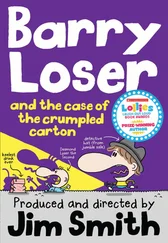“This is a business based almost entirely on trust,” said Candace Ross, an interior decorator in Darien, Connecticut. “Trust in a dealer’s integrity, his eye, his taste. So not only are we talking about a specific case here, we’re talking about the reputation of the antiques market in general.”
Ross points out that it can be extremely difficult to ascertain the true value of an antique. Unlike works of fine art, for example, furniture does not usually accrue a paper trail of ownership, or a provenance. A skillful restorer can embellish a legitimately old piece, making it appear rarer and more valuable than it is. A shrewd dealer can then make exaggerated claims about a piece’s historical significance.
“It’s not so much that Lawrence Groff didn’t know what he was doing,” said Christian Nabel, a curator at the Metropolitan Museum of Art. “It’s more that nobody in that business knows exactly what he’s doing. More precisely, people in that business don’t want to know exactly what they’re doing.”
Groff was released on a $200,000 bond. If convicted, he faces up to ten years in prison.
“I knew he was in financial trouble,” a friend of Groff’s said, “but I didn’t know it was serious. If the allegations turn out to be true, and I don’t know if they will, then the story will be one about panic, I think. Panic about protecting the kind of life he had built up over many years and was afraid of losing.
“What is the line from Eliot?” the friend continued. “ ‘The awful daring of a moment’s surrender which an age of prudence can never retract’?”

I went to see a friend of mine, Ellen Teague, a few days after this story ran. I don’t have a lot of people in my life, Gila had told me that day we’d met for lunch. It occurred to me that I didn’t have a lot of people in my life either, at least not people I could speak to about my father. Ellen and I have known each other more than twenty years — through her marriage, the birth of her daughter, her divorce, her various boyfriends. During all that time I’ve been trying to reconcile the way Ellen looks and thinks and speaks with the diminished way she seems to perceive herself. She’s a tall woman with a perfect face that she doesn’t experience as quite her own, as if the face is a mask. We sat in her office in Carroll Gardens, a room she shares with three other therapists, and drank wine in the late afternoon, chilled white wine on a hot day with the blinds half opened, the still light on the ficus tree and the lime-green sofa and chairs. My father had stopped talking to me a few weeks before this. I told Ellen that although I wasn’t surprised by my father’s silence, the reality of it now was more powerful than I’d expected. It felt like a verdict. What I meant by that was that it was as if my father was declaring that whatever in our relationship hadn’t been my fault before had now become entirely my fault. I felt this, even if I disputed its fairness. I had always been more accusatory than forgiving — I couldn’t blame him for this failing of mine. I understood that, even if I saw his silence as most likely a tacit admission of his own guilt, a product of his shame.
“He’s not talking to anyone,” Ellen reminded me. “It’s not just you.”
“He’s talking to my stepmother.”
“They live together. She’s his wife.”
“She’s the one who picks up the phone when I call. She tells me I shouldn’t take it personally. Just like you. That I should be patient. That it’s not a statement about me. But it certainly is a statement about me.”
I realized that the more I talked, the less attached I felt to the words. All I felt was a vague airlessness, which itself was like a product of the room, its smell of carpet cleaner and the gray light leaking in through the blinds. I thought of Ellen’s patients, the stories she’d told me about them. They were all from my kind of background, I realized, girls from affluent families who’d experienced some emotional trauma or who’d simply experienced their affluent backgrounds as a kind of emotional trauma. They played out this trauma through the most direct means available to them, anorexia and bulimia, narrowing their days to a simple monotonous punishment of hunger and denial. Food, shit, vomit, blood — all of life’s other complexities fell away. Since Ellen herself has struggled with some of these same problems, her work has sometimes seemed to me to have a self-lacerating aspect to it, a dangerous aspect. She lives inside her emotions more than I do. I wouldn’t want to have Ellen’s emotional life, but I sometimes fear that I’ve gone too far in the other direction. I do my work because I find it interesting. I cook because I like to eat well. I clean my apartment, I exercise, I see friends, I have occasional men in my life. I have worked all this out to minimize turbulence, but I realize this is ultimately a defensive posture. A part of me thinks that life is meant to be sloppier.
“You haven’t told me all that much,” Ellen said.
“I don’t have anything else to say.”
“That can’t be true.”
“It feels true.”
“Then you might want to think about why that is. Just saying.”
“Is that your professional opinion?”
“There are art supplies in the closet over there. For the people who don’t like to talk or don’t know how to talk. The ones who can only draw pictures. Paint. Make things out of clay. I bet you couldn’t draw a picture in front of me if I held a gun to your head.”
“What is this?”
“I’m just saying it would make sense if you needed some help right now.”
“I don’t think I need ‘help.’ ”
“Of course not. Everyone thinks that. My clients, for example. Of course eventually there’s not really any ‘them’ to talk to anymore. They’re just bodies. Emaciated bodies. That’s how committed they are to not talking.”
What if everything you have to say is a cliché? Does it change the cliché to express it in other, more evocative language? Or does it make more sense to seek out experiences that don’t lead one to feel like a cliché?
“I don’t think I’m like your patients,” I said to Ellen.
“You mean you’re not a lot like them.”
“I mean I’m more like the opposite of them.”
“Maybe. Maybe so.”
But she was right about one thing. It was true that I could hardly imagine anything that would have made me more uncomfortable than opening a pad of fancy drawing paper and trying to sketch out something about my feelings for my father in that office. I wouldn’t have known where to begin. If that doesn’t make me ridiculous, then I don’t know what does.

I was planning to go back to Israel that fall. I wanted to try to find the apartment Gila had shown me in her photographs at lunch. I wanted to talk to David Bellen’s ex-wife, the one mentioned in his essay, a woman now named Rachel Kessler. I wanted to talk to Eliav, if he would still talk to me after what I’d written about him in my piece on his father’s murder. I wanted to see if I could make sense of all these disparate lives — certainly I wanted to stop thinking about my own. But it was hard to see it as a story. The story was too tangled, even as I felt myself getting more and more invested in it. If I went to Israel, I thought, it would be to simply satisfy a few of my own curiosities — there was no subject I could claim to be “investigating” for any possible piece. But then in November I got an e-mail from Oded Voss, whom I had not heard from in more than two years. He wrote to tell me that a week before, Eliav had been found dead of a heroin overdose in Tel Aviv. He was thirty-eight years old.
Читать дальше













